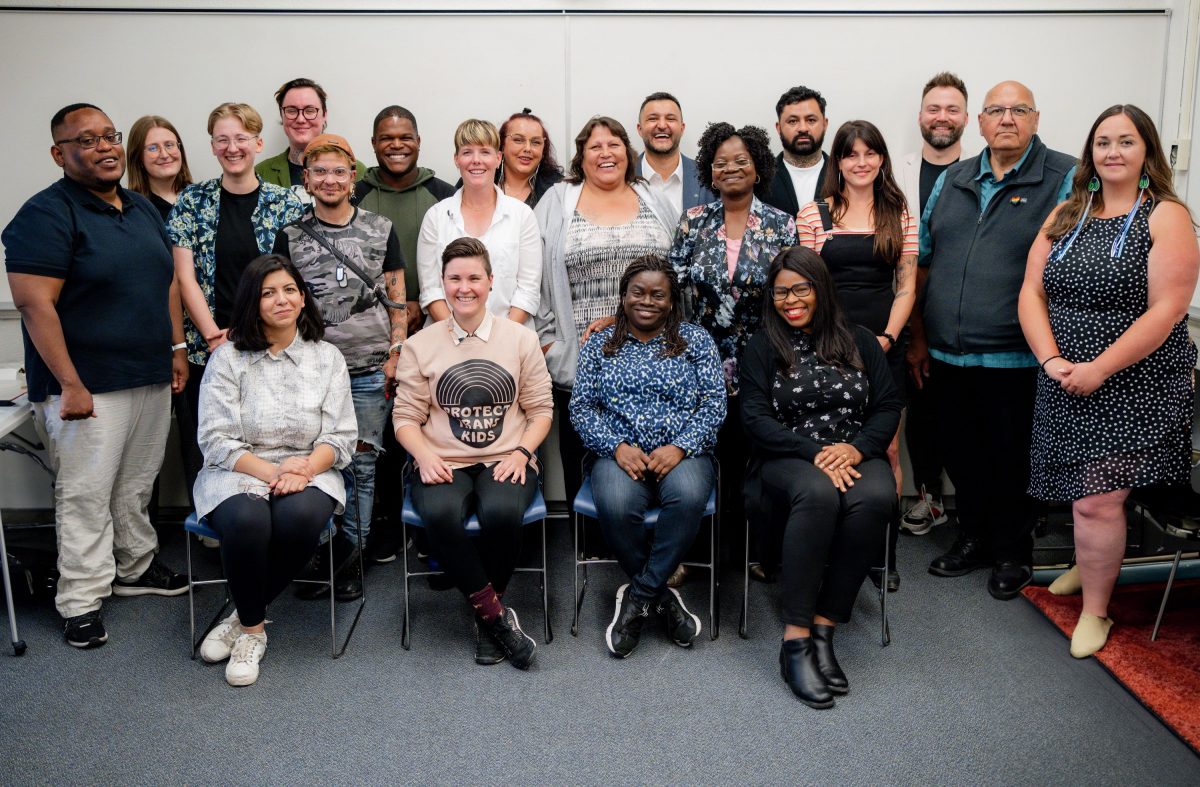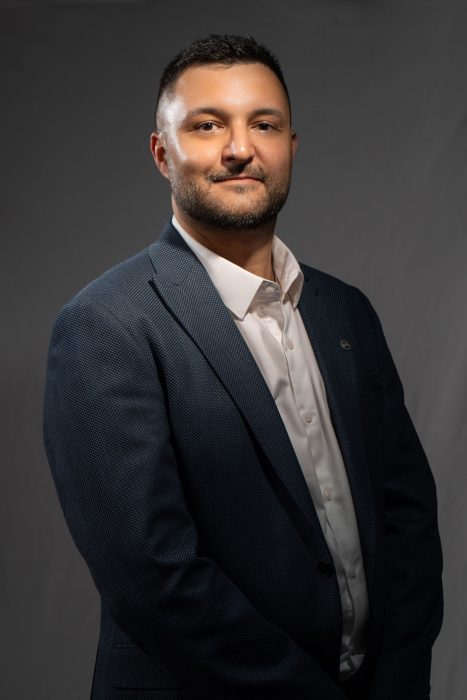
The Village Lab team
HIV research that takes a village
Exploring the potential of Indigenous HIV doula work in Manitoba
Imagine that you’ve just tested positive for HIV. This was the reality for 517 Manitobans between 2018 and 2021 according to the latest Manitoba HIV Program Report. Now imagine that you’re able to connect with an HIV doula: someone who has been exactly where you are in this moment, who can provide emotional support, help you advocate for yourself and guide you through this new life experience. What kind of impact could this have on your health and well-being?
This is one of the questions being explored with the HIV Doula Project, a research study conducted by UM’s Village Lab and their community partner Ka Ni Kanichihk. It is the first study on the role of doulas in the HIV care cascade in Canada. The care cascade is the series of steps people who test positive for HIV go through– from being diagnosed, getting linked to care, starting treatment, and ultimately, reaching and sustaining an undetectable viral load.

Village Lab director Dr. Rusty Souleymanov
Village Lab, which is led by Dr. Rusty Souleymanov at the Faculty of Social Work, was established in 2021 with the goal of improving the health and well-being of people impacted by HIV/STBBI (sexually transmitted and bloodborne infections) and other infectious diseases. They use integrated research, education, interventions and policy to achieve their goals, have a strong commitment to decolonization and equity, and champion harm reduction.
“We do our work and lead projects in a very community-based, participatory way,” Souleymanov says. “Besides me, our team includes an Indigenous Elder, our manager, people with lived experience of HIV, graduate and undergraduate students, research assistants, research and community program coordinators, and many community members. All our research projects are informed by community guiding circles made up of representatives from the diverse communities we work with. I also work very closely with community organizations like Ka Ni Kanichihk, where my colleague Laverne Gervais leads this project.”
The HIV Doula Project focuses on Indigenous doulas specifically.
“For First Nations, Inuit, and Métis people on Turtle Island, relationships to land, community, and culture have been disrupted by colonial and gender-based violence, impacting Indigenous women, two-spirit, trans, and gender-diverse people’s health, including HIV and STBBI,” Souleymanov says. “Community members speak of the importance of this research to identify unmet needs, promote the tangible benefits HIV doulas can have for the community, and enhance the sustainability of those benefits, including creating culturally sensitive and innovative services, outreach, and interventions that focus on HIV doula work.”
For the first phase funded by Gilead Sciences that took place from May 2022 – March 2023, study coordinator Candace Neumann, with support from the lead investigator Laverne Gervais, sat in conversation with 10 participants who were recruited by word of mouth, through peer networks, and at Ka Ni Kanichihk. They were asked questions like:
- Do you think people newly diagnosed, or living with HIV could benefit from there being HIV doulas?
- What would an HIV doula look like to you?
- What would you need to do HIV doula work?
The results of the consultation were compiled in a community report that was published on the Village Lab website.
“Each participant shared beautiful stories that ranged from happy and humorous to heartbreaking and tragic,” Neumann highlighted in the report. “One thread that wove through each sharing was the importance of kinship in all aspects of support for Indigenous people living with or impacted by HIV.”
“The report speaks about the urgent need for this type of work in Manitoba, and it also identifies the infrastructure that is needed to scale this project up,” Souleymanov says.
Gervais and Souleymanov have already received additional funding from the Canadian Institutes of Health Research for the next phase of the project. Their plan is to use sharing circles and Indigenous story work to comprehensively explore the role of Indigenous doulas in HIV/STBBI prevention and care of Indigenous women, two-spirit, trans, and gender-diverse people living with, or at risk of, HIV/STBBI.
“After the research component is completed, we plan to train a small group of community members and implement an HIV doula training program,” Souleymanov says. “We really hope that findings from this study will inform services, interventions and campaigns for Indigenous people in Manitoba.”
The project will also build capacity among Indigenous people living with HIV and Indigenous-led agencies in Manitoba. Indeed, Indigenous HIV doulas could be a bright part of the future of HIV care in Manitoba.






